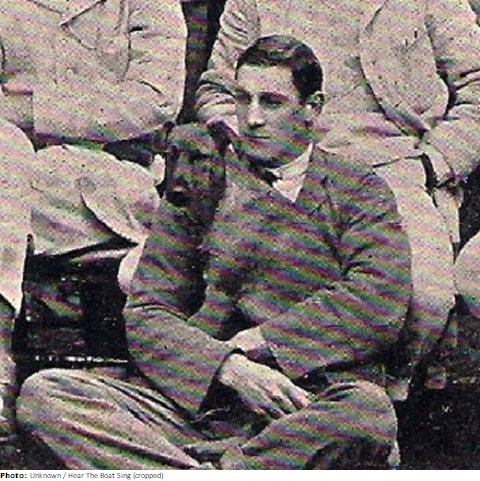
| Roles | Competed in Olympic Games |
|---|---|
| Sex | Male |
| Full name | Eric Walter•Powell |
| Used name | Eric•Powell |
| Born | 6 May 1886 in Hornsey, Haringey, England (GBR) |
| Died | 17 August 1933 (aged 47 years 3 months 11 days) in Piz Roseg, Graubünden (SUI) |
| Measurements | 180 cm / 72 kg |
| Affiliations | University of Cambridge, Cambridge (GBR) |
| NOC |  Great Britain Great Britain |
| Medals | OG |
| Gold | 0 |
| Silver | 0 |
| Bronze | 1 |
| Total | 1 |
Eric Powell can be described in three words - oarsman, painter, mountaineer.
Educated at Eton, and Trinity College, Cambridge, he was in the Eton rowing eight that beat Christ’s College, Cambridge to win the 1905 Ladies’ Plate at Henley. Upon gong to Cambridge, he was a member of three successive winning Boat Race crews 1906-08. His older brother Ronald also appeared in three Cambridge crews and in 1906 the siblings rowed alongside each other. Ronald also won the Grand Challenge Cup and Silver Goblets (twice) at Henley. In 1908 Eric rowed against his brother-in-law Harold Barker in the Boat Race. Coincidentally, both men rowed at No.7. Eric was also an excellent sculler and, having lost to Wally Kinnear in the 1911 Diamond Sculls final at Henley, he beat Andrew McCulloch to win the coveted race the following year.
Powell returned to Eton as a master in 1910 to teach French and German. He also coached the rowing eight for some years, a role he reprised in 1933, the year that he died. He stayed at Eton for more than 20 years, eventually becoming a senior art master and house master. At the start of World War I in 1914, Powell was an infantry officer but in 1916 switched to the Royal Flying Corps (later the Royal Air Force) where he was an aeroplane observer with the Intelligence Department. He went on to become a squadron leader, and later a wing-commander. He returned to Eton in 1919, but then took a year out to study art in Paris with a view to becoming the school’s art master, a post he duly obtained.
A keen artist in his own right, Powell painted mostly with watercolours. He was a member of the Reading Guild of Artists and exhibited at the Walker’s Galleries in New Bond Street, London. Powell’s other passion was mountaineering. He took it up just after the end of the War, but by 1925 had climbed many of the leading Alpine peaks. A member of the Alpine Club, Powell was one of four Eton masters who went to the Swiss Alps in 1933 with a view to reaching the peak of Piz Roseg, near Pontresina on the Italian border. Sadly, while making the descent, all four fell to their death and are buried in a joint grave at Pontresina.
A few months after his death, the Walker’s Galleries held a memorial exhibition of some 90 of Powell’s works including, ironically, three pictures of the Piz Roseg peak where he lost his life.
| Games | Discipline (Sport) / Event | NOC / Team | Pos | Medal | As | |
|---|---|---|---|---|---|---|
| 1908 Summer Olympics | Rowing |  GBR GBR |
Eric Powell | |||
| Eights, Men (Olympic) | Cambridge University Boat Club | =3 | Bronze |